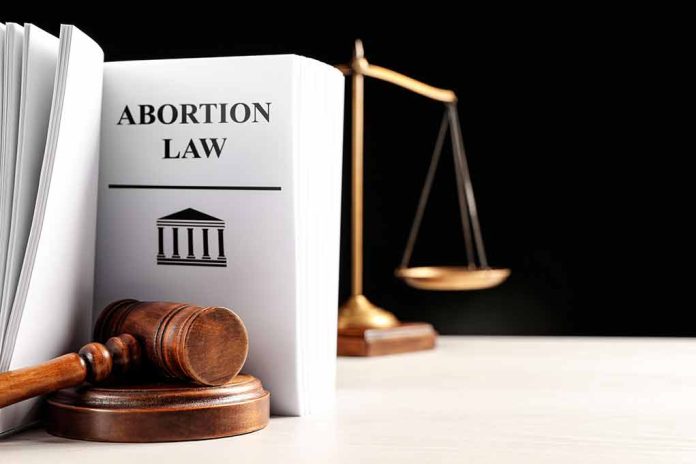
The heated debate over Georgia’s House Bill 441 has intensified, pitting religious beliefs against women’s rights in a national conversation.
Key Takeaways
- House Bill 441 seeks to grant legal personhood to unborn babies, equating abortion to murder.
- Rep. Dar’shun Kendrick criticized the bill, framing it as a religious imposition.
- The bill faces opposition due to its lack of exceptions for rape or incest.
- The legislative process has stalled, complicating the bill’s advancement.
- Christian advocates emphasize protecting preborn lives as a moral duty.
Legal Definitions Challenge Abortion Rights
The Georgia Prenatal Equal Protection Act, or House Bill 441, proposes that unborn babies receive the same legal protections as born individuals. This would effectively categorize abortion as murder, aligning with the conservative agenda, yet sparking fierce opposition from pro-choice advocates who argue it encroaches upon women’s reproductive rights. The bill has incited pivotal discussions at legislative hearings attended by both Christian advocates and pro-abortion citizens.
Georgia Representative Emory Dunahoo, the bill’s sponsor, voices the moral imperative to extend protection to unborn lives, stating, “Tens of thousands of babies made in the image of God continue to be murdered in our state every year. This bill simply ensures that the same laws that protect the lives of people after birth equally protect the lives of people before birth.”
State Rep. Shea Roberts raised concerns about the bill’s implications, questioning the lack of exceptions for rape or incest, and highlighting the potential criminalization of those suffering miscarriages. Such legal uncertainties may deter physicians from critical healthcare practices.
Religious Beliefs Spark Controversy
During a hearing session marked by poignant exchanges, Democratic State Rep. Dar’shun Kendrick criticized the bill as an imposition of religious dogma. “America and Georgia are NOT A THEOCRACY!!!” Kendrick’s remarks ignited reactions, emphasizing the tension between secular values and religiously driven legislation. Meanwhile, Christian ministers and anti-abortion advocates argue that their beliefs necessitate action to prevent the termination of pregnancies.
The debate has underscored the broader discussion around the intersection of church, state, and governance. While Christian groups root their advocacy in moral convictions, opponents argue for maintaining a secular stance in legal frameworks.
Legislative Efforts and Future of the Bill
The bill’s journey through the legislative process remains uncertain. Organizational challenges, such as overcrowded hearings that required troopers to clear the room, indicate the public’s vested interest. However, as the legislative session progresses, timing issues and potential bottlenecks hinder the bill’s advancement. Despite the bill not being favored for passage in this session, its presence in legislative dialogues propels the national narrative regarding abortion policies.
In the ongoing battle over House Bill 441, stakeholders from both sides continue to voice their perspectives, while the broader implications for religious beliefs and women’s rights unfold. As policymakers navigate these complexities, the resultant decisions will set precedents for statewide and national abortion legislation.
Sources:
- Democratic Lawmaker Mocks God with Handwritten Note During Abortion Bill Hearing
- Near-total abortion ban draws strong emotions at legislative hearing |
- Hearing over new GA bill that equates abortion to murder got so crowded troopers had step in



